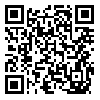Wed, Feb 18, 2026
| فارسی
Volume 26, Issue 3 (Autumn- Special Issue on COVID-19 2020)
IJPCP 2020, 26(3): 280-293 |
Back to browse issues page
Download citation:
BibTeX | RIS | EndNote | Medlars | ProCite | Reference Manager | RefWorks
Send citation to:



BibTeX | RIS | EndNote | Medlars | ProCite | Reference Manager | RefWorks
Send citation to:
Rezaei S, Sameni Toosarvandani A, Zebardast A. Effect of COVID-19-induced Home Quarantine on Parental Stress and its Relationship With Anxiety and Depression Among Children in Guilan Province. IJPCP 2020; 26 (3) :280-293
URL: http://ijpcp.iums.ac.ir/article-1-3221-en.html
URL: http://ijpcp.iums.ac.ir/article-1-3221-en.html
1- Department of psychology, Faculty of Literature and Humanities, University of Guilan, Rasht, Iran.
2- Department of psychology, Faculty of Literature and Humanities, University of Guilan, Rasht, Iran. ,zebardast@guilan.ac.ir
2- Department of psychology, Faculty of Literature and Humanities, University of Guilan, Rasht, Iran. ,
Abstract: (7502 Views)
Objectives: Acute attacks of epidemics and the physical risk have adverse severe psychological effects on children due to their lower protective capacity.
This study aimed to determine home quarantine’s psychological effect because of Coronavirus (COVID-19) on parental stress and its relationship with anxiety and depression in children.
Methods: This research was conducted during 17-26 March 2017 - the initial stages of the Iranian people’s public call for quarantine - in Guilan province. The study’s statistical population included all children aged 5 to 12 years and their parents who were purposefully sampled, and 181 people responded voluntarily to the Child Symptom Inventory-4 (CSI-4)-Parental Form and the Impact of Event Scale-Revised (IES-R). For data analysis, the Pearson correlation coefficient, independent t-test, and regression analysis were used.
Results: After eliminating the effect of demographic variables, it was found that more parents› scores on the intrusion subscale (β=0.568, P=0.004) and hyperarousal (β=0.772, P<0.0001) could predict more anxiety scores. None of the IES-R components in parents could predict children’s depression scores (P>0.05). In general, the higher parental scores on IES-R, the more likely the child to have anxiety scores (β=0.258, P=0.011) and depression (β=0.325, P<0.0001) in children.
Conclusion: Based on the results, it can be said that the psychological effect of home quarantine caused by Covid-19 pandemic in parents can have a devastating impact on children’s anxiety and depression, and these results necessitate the training programs of psychological support for parents and their children.
This study aimed to determine home quarantine’s psychological effect because of Coronavirus (COVID-19) on parental stress and its relationship with anxiety and depression in children.
Methods: This research was conducted during 17-26 March 2017 - the initial stages of the Iranian people’s public call for quarantine - in Guilan province. The study’s statistical population included all children aged 5 to 12 years and their parents who were purposefully sampled, and 181 people responded voluntarily to the Child Symptom Inventory-4 (CSI-4)-Parental Form and the Impact of Event Scale-Revised (IES-R). For data analysis, the Pearson correlation coefficient, independent t-test, and regression analysis were used.
Results: After eliminating the effect of demographic variables, it was found that more parents› scores on the intrusion subscale (β=0.568, P=0.004) and hyperarousal (β=0.772, P<0.0001) could predict more anxiety scores. None of the IES-R components in parents could predict children’s depression scores (P>0.05). In general, the higher parental scores on IES-R, the more likely the child to have anxiety scores (β=0.258, P=0.011) and depression (β=0.325, P<0.0001) in children.
Conclusion: Based on the results, it can be said that the psychological effect of home quarantine caused by Covid-19 pandemic in parents can have a devastating impact on children’s anxiety and depression, and these results necessitate the training programs of psychological support for parents and their children.
Type of Study: Original Research |
Subject:
Psychiatry and Psychology
Received: 2020/05/2 | Accepted: 2020/07/13 | Published: 2020/11/30
Received: 2020/05/2 | Accepted: 2020/07/13 | Published: 2020/11/30
| Rights and permissions | |
 |
This work is licensed under a Creative Commons Attribution-NonCommercial 4.0 International License. |






